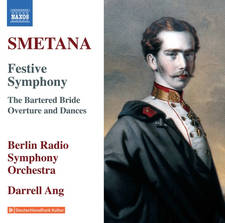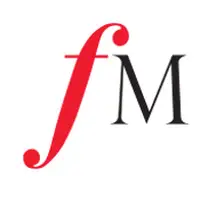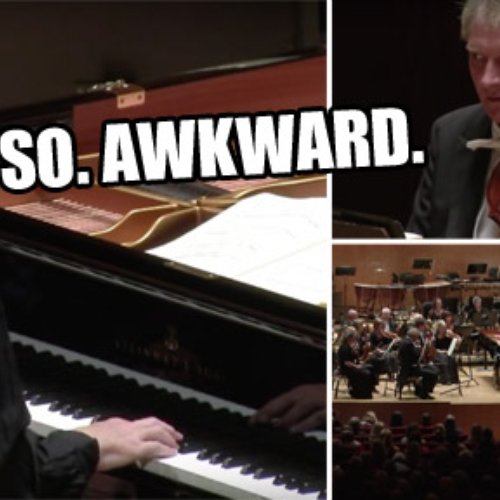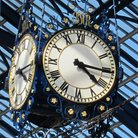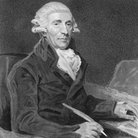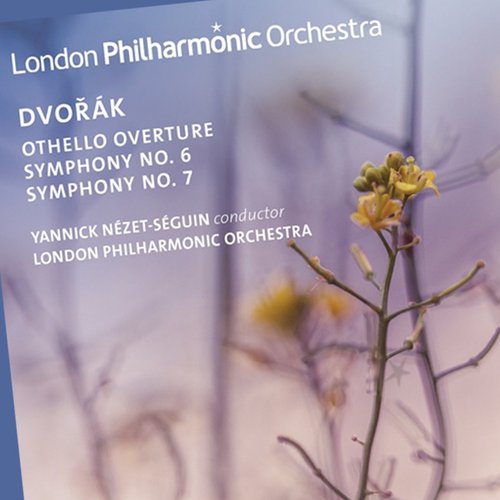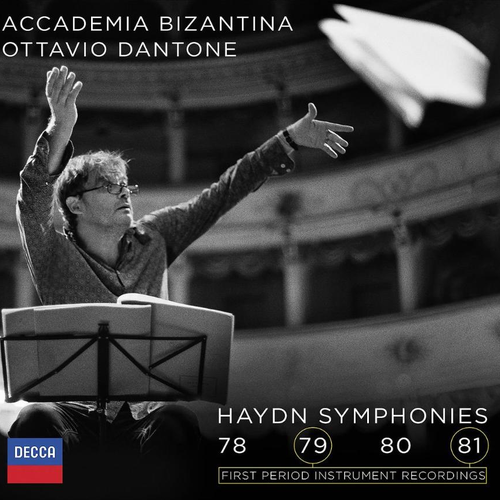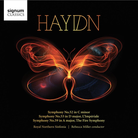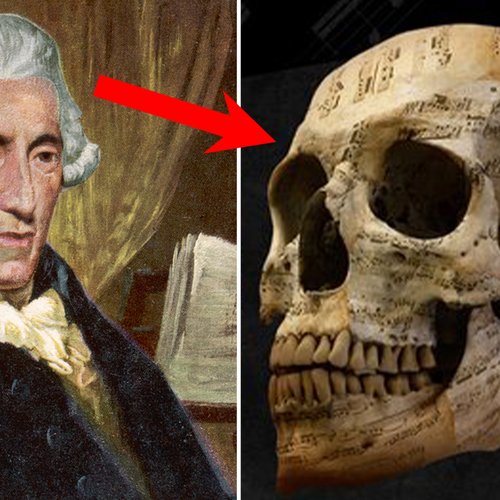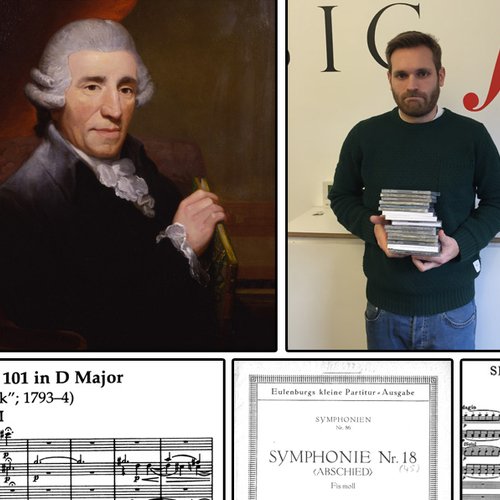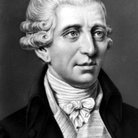10 greatest pieces of classical music by Haydn
12 January 2024, 17:12
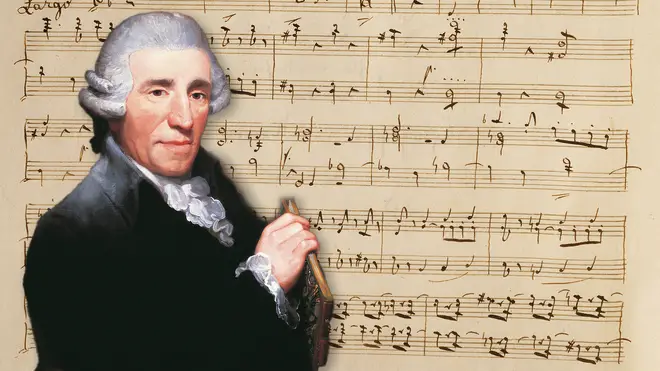
Austrian composer Joseph Haydn wrote over 100 symphonies, and almost as many string quartets, more than 50 keyboard sonatas, 14 masses, and 32 ‘pieces for mechanical clock’! Here are his 10 best.
Listen to this article
Franz Joseph Haydn, or ‘Papa Haydn’ as his friends and colleagues knew him, was an 18th-century Austrian composer, responsible for much of the musical innovation of the period, and the composers who followed in his footsteps.
With over 100 symphonies and almost 70 string quartets to his name, Haydn was a prolific composer. He spent a large chunk of his career employed as ‘Kapellmeister’ by the aristocratic – and very wealthy – Esterházy family, in modern-day Hungary.
Haydn’s Esterháza residency spanned almost 30 years, where he churned out anthem after classical anthem, including the melody that would become the German national anthem.
Isolated from the influence of other composers he carved out his own signature style, most notably in symphonies and string quartets. He is even known throughout the annals of history as both the ‘Father of the Symphony’ and ‘Father of the String Quartet’.
With such a long list of achievements and musical works, Haydn’s works can be overwhelming before you’ve even decided where to begin. So, allow us to do the hard work for you.
Here are the absolute Top 10 pieces of music, written by Franz Joseph ‘Papa’ Haydn...
Read more: 10 of the best Classical era composers
-
The Seasons
Split into four parts, Haydn’s oratorio The Seasons is, as you might have guessed, a pastoral celebration of the changing of the seasons, told through the combined forces of orchestra, choir, and soloists.
The music itself includes picturesque musical images of a sunrise, thunderstorms, plentiful celebrations with wine and dance, hunting horns, and a whistling farmer.
Haydn enlisted Baron Gottfried van Swieten to write the libretto for this oratorio, after a successful collaboration on The Creation previously. It was by and large a triumph, although Haydn took objection to one passage in particular.
Annotating a piano reduction of the orchestral music, Haydn wrote: “NB! This whole passage, with its imitation of the frogs, was not my idea: I was forced to write this Frenchified trash.”
Read more: How Joseph Haydn’s skull went missing from his grave

Joseph Haydn: The Seasons - Nikolaus Harnoncourt (Salzburg 2013, HD 1080p)
-
The Seven Last Words of Christ
This evocative, highly emotional work was composed by Haydn in 1786 for the Good Friday service at the Holy Cave Oratory church, in Cádiz, southern Spain. It consists of seven slow meditations on the final words spoken by Jesus before his crucifixion.
Its unusual format and the emotional nature of the words mean that the composer was challenged to be quite inventive and innovative in the music, with harmony and tonality being pushed in new directions.
Originally written for orchestra, it was later adapted for string quartet, solo piano and orchestra and chorus, and remains something that’s often performed in candlelit churches during the final week of Lent.

Haydn: The Seven Last Words
-
‘Surprise’ Symphony No.94
Between 1791 and 1795, Haydn wrote a group of 12 major works, which he named the ‘London Symphonies’.
Well known for his jolly sense of humour, Haydn wrote a little musical joke into the second movement of the second London symphony.
A super-quiet and dainty introduction is suddenly interrupted with a loud chord, enough to make a softly snoozing audience member jump out of their seat!
And so, the ‘Surprise’ Symphony deservedly earned its title.

Haydn - Symphony No. 94 in G Major "Surprise” - Leonard Bernstein, Vienna Philharmonic
-
The Creation
Undoubtedly one of the composer’s greatest masterpieces, Haydn was inspired to write this epic work during his time in London in the 1790s.
The Creation, which premiered in Vienna in 1798, was a huge success in the composer’s lifetime and has continued to be performed ever since.
The oratorio describes the creation of the world as told in the Bible’s Book of Genesis. The work is structured around the famous six days of creation, full of lyrical solos and rousing choruses.
But it’s the beginning that is one of the most striking movements in music history.
Haydn’s opening passage depicts the chaos before the creation of the world, with slow, dissonant, clashing musical lines, withholding the resolution of the cadences. It almost feels as though Haydn was recreating music and harmony at this moment.

Haydn: The Creation | Nederlands Kamerkoor, Concerto D’Amsterdam & Klaas Stock (2009)
-
‘Emperor’ String Quartet
Debate still rages as to whether or not Haydn invented the form of the string quartet, but there’s no doubt he was the most important early master of the form – the ‘Father of the String Quartet’.
Any one of his six String Quartets Op. 76 could be worthy of this list – but one stands out due to the sheer familiarity of its central tune.
The quartet’s ‘Emperor’ nickname comes from the very famous melody that leaps out in the second movement.
Haydn sets a theme and variations on a hymn for Emperor Francis II – 'God save Emperor Francis' later became the national anthem of Austria-Hungary, and then (most famously, these days) the national anthem of Germany.
Beyond the famous tune heard in many a football final or Sebastian Vettel Formula One podium, the quartet is regarded as one of the finest examples of Haydn’s chamber music and his ability to score for four instruments, yet create a full, modern and dramatic sound.

Amadeus Quartet plays Haydn 'Emperor' Quartet, Op. 76, No. 3
-
Cello Concerto No.1
It’s hard to believe that modern audiences have only been able to hear this music for 60 years, especially given its popularity – but that’s just how good this music is.
Originally written in the 1760s, Haydn’s concerto was presumed lost for the best part of its history, before being rediscovered in the archives of the Prague National Museum in 1961.
Haydn’s solo cello line is lyrical and dramatic, charged with excitement and emotion from start to finish. Here’s one of the finest performances, and just take a moment to relish in that cadenza at eight minutes!

Haydn: 1. Cellokonzert C-Dur ∙ hr-Sinfonieorchester ∙ Bruno Philippe ∙ Christoph Eschenbach
-
Nelson Mass
Officially titled Missa in angustiis, or ‘Mass for troubled times’, Haydn’s Nelson Mass has been described by his biographer H.C. Robbins Landon as “arguably Haydn’s greatest single composition.” What high praise.
This is one of six masses Haydn composed towards the end of his life, written during a time of political and social turmoil in Western Europe. Napoleon was conquering his way through Austria, threatening Vienna, and had just invaded Egypt.
Thankfully, a resolution was just on the horizon. Admiral Nelson defeated Napoleon’s army in the Battle of the Nile just two weeks before the Mass’ premiere, resulting in the work’s nickname.
It’s a piece full of anguish, demanding of its performers, but some of the most sublime choral writing of its time and well worth its 40 minutes’ duration.

Haydn - Lord Nelson Mass
-
‘London’ Symphony No.104
In case you were wondering – no, it’s not a typo. Haydn really did write a 104th Symphony. He was apparently immune to the infamous ‘Curse of the Ninth’, and wrote a whopping 106 symphonies in his lifetime.
Read more: What is the Curse of the Ninth and does it really exist?
This was his last and, in our opinion, may well be one of his greatest. Nicknamed the ‘London’ Symphony, it was one of 12 symphonies inspired by the English capital, in a series that also included the ‘Surprise’ and ‘The Clock’ symphonies (Nos 94 and 101, respectively).
Haydn’s grandiose work was premiered in May 1795 at the King’s Theatre, in a concert that featured only the composer’s work and was directed by the man himself, too.
Haydn wrote of its success in his diary: “The whole company was thoroughly pleased, and so was I. I made 4,000 gulden (approximately £1740 in 2024) on this evening: such a thing is possible only in England.” Great work if you can get it...

Haydn: Symphony nº 104 "London" - Dima Slobodeniouk - Sinfonica de Galicia
-
Symphony No.49, ‘La Passione’
Haydn’s achingly beautiful 49th Symphony is one like no other.
Writing it in 1768, the composer was beginning to enter his so-called ‘Sturm und Drang’ period. Translating to ‘storm and stress’, the style characterised much of the gothic-Romantic music and literature from the late 1760s to early 1780s.
Seen also in music by Mozart and Wagner, the style tends to deal with turbulent subjects, featuring rapid changes in tempo, and dynamic, and unconventional melodic lines.
There are also an unusual number of storms involved, and its all rather dramatic. But have a listen to this, and tell us it doesn’t make you feel all the emotions on the human scale.

Haydn : Symphonie n° 49 en fa mineur, « La Passion »
-
Trumpet Concerto
And so we arrive at our No.1 – and how could it be any other than Haydn’s blistering Trumpet Concerto?
This piece was truly innovative in its time. It was written specially for virtuosic trumpeter, Anton Weidinger, who had developed a special trumpet with keys, that could play all the notes in the chromatic scale.
Until then, trumpets had been a simple tube of metal that could only play a select few notes in the harmonic series. Weidinger’s invention freed up composers including Haydn to write more adventurous and complex music for the trumpet than ever before.
The full work is a triumph, and a favourite of trumpet players to this day. It even received an extra burst of popularity thanks to the inclusion of its finale in hit Netflix series Squid Game.
Read more: Star trumpeter Alison Balsom reveals her top five trumpet concertos

Haydn: Trumpet Concerto / Tarkövi · Minkowski · Karajan-Academy of the Berliner Philharmoniker
